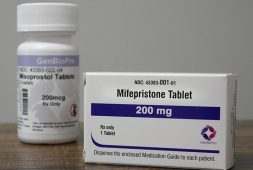Mediterranean Diets Found To Help With Lowering Chances For Alzheimer’s Plaques And Tangles

A typical Mediterranean diet requires you to consume a lot of leafy greens, nuts, and fish, among several others. They found that this was linked to elderly brains that were found to have fewer plaques that are thought to be the culprit behind Alzheimer’s.
Many experts believe that Alzheimer’s is caused by a build-up of tau proteins called amyloid-beta. What these do is block the neuron connections in the brain. As for the scientists at the American Academy of Neurology, they also saw a link between the diet and reduced amounts of these tau protein accumulation in the brain.
What they did is closely studied a total of 561 adults with an average age of 84 years old who followed the so-called Mediterranean Diet, or what is commonly call the MIND Diet. The diet requires the consumption of more fish than red meat, and more vegetables than fruit. It also calls for the use of a good amount of olive oil. As for fruits allowed, MIND specifically recommends more berries than other types of fruit.
The participants involved had passed away an average of seven years after the beginning of the study. Right before they passed, 39 percent of them had already been diagnosed with dementia. When they were examined after death, 66 percent fell under the criteria for Alzheimer’s disease.
During the autopsy, researchers examined their brains to see if the amounts of amyloid plaques and tau tangles were present. Then, the researchers also looked back at a series of food questionnaires that talked about their adherence to the two diets which had been collected over years and ranked the quality of the diet for the individuals involved.
The Mediterranean diet had 11 food categories. Participants were given a score of zero to 55. The higher the score, the more they adhered to the diet in the categories set: whole grain cereals, fruits, vegetables, legumes, olive oil, fish, and potatoes. Lower scores indicated that they also consumed red meat, poultry, and full-fat dairy items.
The MIND diet has around 15 categories. Participants were given a score of zero to 15. One point was given for 10 brain-healthy food groups such as green leafy vegetables, other vegetables, nuts, berries, beans, whole grains, fish, poultry, olive oil, and wine. They would go back a point if they ate more than what was recommended in the five unhealthy food groups set. The unhealthy list included red meats, butter and margarine, cheese, pastries and sweets, and fried and fast food.
The participants were then divided into three groups for each diet and compared those who beloned to the highest groups to those belonging to the lowest groups.

Grains of Salt is Required
After making adjustments for age at death, sex, education, total calorie intake, and if the participants had a gene that was connected to a greater risk of Alzheimer’s disease, the researchers found those who scored highest for following the Mediterranean diet had average plaque and tangle amounts in their brains that were much like individuals who were 18 years younger. They compared them to those who scored the lowest.
Researchers also saw that those who scored highest for sticking to the MIND diet had average plaque and tangle amounts similar to those who were 12 years younger. They also compared these to people who had the lowest scores.
A MIND diet score one point higher corresponded to typical plaque amounts of those who were 4.25 years younger when it came to age.
When the researchers studied the single diet components, they found that those who had the highest amounts of green leafy vegetables, or seven or more servings per week, had plaque amounts present in their brains corresponding to being almost 19 years younger than those who had less or the fewest. The latter being one or less servings per week.
“These results are exciting—improvement in people’s diets in just one area—such as eating more than six servings of green leafy vegetables per week, or not eating fried foods—was associated with fewer amyloid plaques in the brain similar to being about four years younger,” Study author Puja Agarwal, Ph.D., of RUSH University in Chicago, said.
“While our research doesn’t prove that a healthy diet resulted in fewer brain deposits of amyloid plaques, also known as an indicator of Alzheimer’s disease, we know there is a relationship and following the MIND and Mediterranean diets may be one way that people can improve their brain health and protect cognition as they age.”
However, it must be noted that the data gathered is not to be made conclusive and a cause-and-effect relationship had not yet been established. These self-reporting questionnaires are not accurate ways of collecting evidence.
It also should be noted that the Mediterranean Diet is considered a difficult scholarly tool. The idea behind the study is that long lifespans and lower incidences of cardiovascular disease, stroke, and cancer are observed in the Mediterranean populations. However, it goes above any dietary component. These are also determined by income level. This means that the richer countries having better outcomes. And as expected, poorer countries also show worse ones.
Moreover, the Mediterranean Dieters involved in the study had been listed for the consumption of full-fat dairy and red meat. The Mediterranean nations of Italy, France, and Spain eat at higher rates than almost anywhere else around the other countries in Europe. The issue for the scientists here is that these countries have shown to have the highest life expectancies found on the continent, considering that they also enjoy consuming cured meats, cheeses, pizzas, and pastas.
Researchers say that to improve Alzheimer’s markers, they must stick to diets that spotlight specific foods. This means that they need to lessen eating fried and ultra-processed foods to cut out the unhealthy effects as well.



